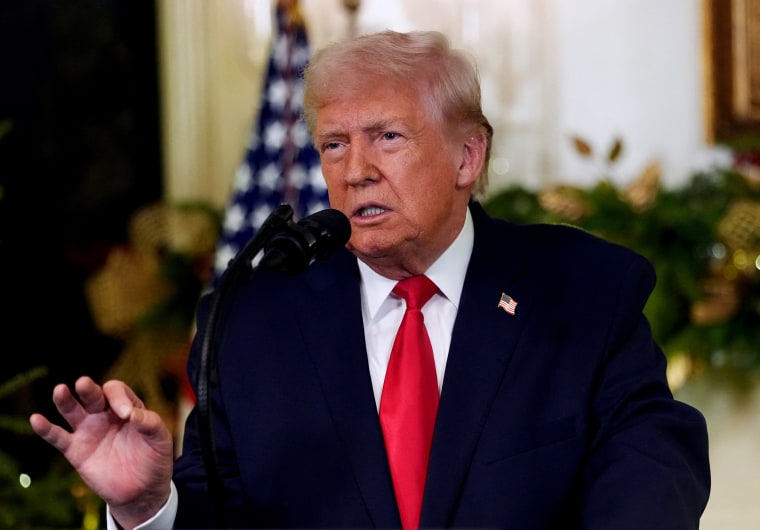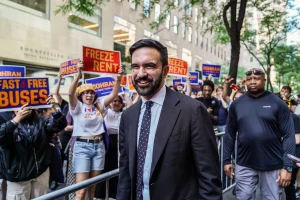Rapper and entrepreneur 50 Cent has come under intense scrutiny following a controversial social media post reacting to Zohran Mamdani’s election as New York City’s mayor. The post, which featured an AI-generated image of a gravestone declaring, “RIP NYC. FOUNDED 1624. DIED 2025,” quickly sparked debate among social media users, fans, and political commentators alike. Mamdani’s historic victory has not only been significant for the city’s political landscape but has also become a lightning rod for discussions about wealth, policy, and influence in modern politics.
Mamdani’s Historic Election
Zohran Mamdani’s election has been historic in multiple ways. At 34, he is the youngest mayor New York City has seen in over a century. He is also the first Muslim mayor, the first of South Asian heritage, and the first born in Africa to hold the office. The mayoral race saw over two million New Yorkers cast ballots, marking the highest voter turnout in more than fifty years, according to the city’s Board of Elections.
Mamdani’s rise to office was characterized by a strong progressive platform that resonated with younger voters, working-class residents, and those disillusioned with traditional political structures. His campaign directly challenged the policies of established politicians, including former governor Andrew Cuomo and Republican candidate Curtis Sliwa, both of whom he decisively defeated.
From the start, Mamdani was not shy about calling out policies he deemed unfair or ineffective. This included critiques of national figures, such as President Donald Trump, which further solidified his image as a forthright and independent political voice.
Controversial Policies Spark Debate
One of the key areas of Mamdani’s policy platform involves taxation, particularly measures aimed at raising revenue from the wealthiest New Yorkers. He has proposed increasing the corporate tax rate to 11.5 percent and implementing a flat two percent tax on individuals earning over $1 million annually. These proposals have garnered both support and criticism.
Supporters argue that such measures are necessary to fund essential public services and ensure a more equitable distribution of resources within the city. New York City faces a range of challenges, including underfunded libraries, insufficient trash collection services, and other municipal deficiencies. Advocates contend that taxing the highest earners more heavily could help rectify these issues and improve the quality of life for all residents.
Critics, particularly among the city’s wealthy and high-profile public figures, have expressed concern that these policies could stifle economic growth or drive affluent individuals out of New York. 50 Cent’s social media post is emblematic of this group, reflecting fears that Mamdani’s policies would drastically reshape the city’s financial landscape.
50 Cent’s Post and Public Reaction
The rapper’s Instagram post, showing a digital gravestone with the city’s “death” in 2025, quickly became a viral talking point. Social media users reacted in a variety of ways, from amusement to criticism.
Some commentators emphasized the irony of wealthy individuals publicly lamenting election outcomes that simply reflected the democratic process. One user remarked:
“Rich people being upset about elections is a good thing for regular citizens.”
Others reacted with outright humor:
“LMAOOOOOOOO CRY HARDER.”
However, some offered pointed criticism of 50 Cent himself, arguing that as a billionaire public figure, his opposition to policies aimed at supporting lower-income New Yorkers seemed disconnected from the challenges faced by everyday residents. One commenter wrote:
“I liked you before but going against Mamdani is not a good look coming from a rich celebrity. Mamdani’s policies will help the lower income families and people struggling getting food on the table. I am excited to see what he will do as a mayor. I see this as being great for New York!”
The reactions highlight the tension between celebrity influence and civic responsibility. In an era where social media amplifies public figures’ opinions, posts like 50 Cent’s can quickly spark debate and shape public perception, regardless of the underlying facts or policy details.
Past Commentary from 50 Cent
This is not the first time 50 Cent has voiced strong opinions about Mamdani. In June, the rapper expressed skepticism about the mayor-elect’s plans and influence, stating:
“Where did he come from? Whose friend is this? I’m not feeling this plan. No. I will give him $258,750 and a first class one-way ticket away from NY. I’m telling Trump what he said too!”
At the time, he even suggested that he would pay for Mamdani to leave the city, underscoring his dramatic and often hyperbolic approach to expressing political opinions.
Mamdani’s Response
Zohran Mamdani responded to 50 Cent’s criticism with composure and humor during an interview on MSNBC’s The Beat with Ari Melber. He said:
“He’s a critic! I didn’t even know what my salary would be until I opened up Instagram and saw this thing that was like, ’50 Cent offers Mamdani x-amount of money.’ I was like, ‘That’s a very specific amount of money. Oh my God!’”
Despite the disagreement, Mamdani also found room for levity, joking:
“Even though we have a disagreement on tax policy, every time I get a death threat, I still listen to ‘Many Men.’”
This response reflects Mamdani’s ability to handle high-profile criticism with poise, while simultaneously underscoring the absurdity of celebrity interventions in municipal policy debates.
Explaining the Tax Proposals
Mamdani took the opportunity to explain why he believes the proposed taxes are necessary, particularly for the city’s economic health and long-term sustainability. He stated:
“I continue to think that having the top one percent in New York City who are making more than one million dollars a year, having them pay two percent more for an economic agenda that would transform every New Yorker’s life, including their own, is something that is worthwhile. The reason I say including their own is when you see a city like ours that is underfunding its city agencies, that is pulling back on the most basic things like library services and trash cans, everybody feels the effects of that.”
Mamdani emphasized that these policies are not about penalizing success but about creating a fairer system in which the wealthiest contribute proportionally to the city’s development and infrastructure. He argues that this approach will benefit all residents, from low-income families to the affluent, by ensuring adequate funding for essential services.
Broader Social Implications
The exchange between 50 Cent and Mamdani highlights the complex intersection of celebrity culture, wealth, and political discourse in contemporary America. While celebrities can amplify important conversations, their interventions sometimes overshadow the substance of policies themselves. Mamdani’s response demonstrates how political leaders can navigate this terrain: acknowledging criticism, using humor to defuse tension, and focusing attention on the practical impact of their policies.
Public reaction to 50 Cent’s post also underscores the growing awareness among citizens about the role of social media in shaping public opinion. Many commentators on platforms such as Twitter and Instagram highlighted the disconnect between celebrity perspectives and the lived experiences of average New Yorkers. In doing so, they pointed to a broader conversation about accountability, civic engagement, and the responsibility of influential figures to consider the social consequences of their commentary.
The Political Context
Mamdani’s proposals and the criticism they have drawn must also be understood within the broader context of New York City politics. The city has long struggled with income inequality, underfunded public services, and infrastructure challenges. Advocates for higher taxes on corporations and high earners argue that targeted increases in revenue are essential to addressing these systemic issues.
The debate also reflects wider national conversations about wealth, taxation, and civic responsibility. Mamdani’s policies, which would affect some of the city’s wealthiest residents, intersect with longstanding tensions between different socio-economic groups. By proposing targeted taxes, Mamdani positions himself as a leader willing to challenge entrenched interests in pursuit of broader social equity.
Looking Ahead
As Mamdani prepares to take office on January 1, the public discourse surrounding 50 Cent’s post serves as a reminder of the multifaceted pressures facing modern politicians. Leaders must navigate not only policy debates but also social media commentary, celebrity influence, and public perception. Mamdani’s handling of criticism—using humor and clarity while emphasizing his policy goals—offers a model for how elected officials can respond to such pressures effectively.
His tenure promises to be closely watched, not only for the policies he implements but also for how he manages public opinion and interacts with both supporters and critics. The city will be watching to see whether Mamdani’s vision for more equitable taxation and strengthened public services can be realized, even amid scrutiny from wealthy critics and outspoken public figures like 50 Cent.
Conclusion
The viral exchange between 50 Cent and Zohran Mamdani highlights the evolving dynamics of politics, celebrity influence, and social media in shaping public discourse. While 50 Cent’s post generated headlines and sparked debate, Mamdani’s calm, humor-infused response kept the focus on policy and governance.
By explaining the rationale behind his tax proposals and addressing criticism with composure, Mamdani reinforced a key principle of effective leadership: the ability to remain grounded, focused, and pragmatic, even in the face of public scrutiny and provocative commentary.
As New Yorkers prepare to welcome Mamdani into office, the story underscores the challenges and opportunities of leading a global city in the modern era—where political decisions are scrutinized in real-time, celebrity voices can amplify controversies, and effective governance requires balancing bold policy initiatives with careful public communication.
Ultimately, the exchange serves as a broader lesson about the role of wealth, influence, and civic responsibility. It illustrates that political leaders must be prepared to address both systemic challenges and public opinion while maintaining a focus on improving the lives of all residents. For Zohran Mamdani, the start of his mayoral term marks the beginning of not only a historic political chapter but also an ongoing dialogue about equity, leadership, and the responsibilities of both citizens and public figures in shaping the future of New York City.

Emily Johnson is a critically acclaimed essayist and novelist known for her thought-provoking works centered on feminism, women’s rights, and modern relationships. Born and raised in Portland, Oregon, Emily grew up with a deep love of books, often spending her afternoons at her local library. She went on to study literature and gender studies at UCLA, where she became deeply involved in activism and began publishing essays in campus journals. Her debut essay collection, Voices Unbound, struck a chord with readers nationwide for its fearless exploration of gender dynamics, identity, and the challenges faced by women in contemporary society. Emily later transitioned into fiction, writing novels that balance compelling storytelling with social commentary. Her protagonists are often strong, multidimensional women navigating love, ambition, and the struggles of everyday life, making her a favorite among readers who crave authentic, relatable narratives. Critics praise her ability to merge personal intimacy with universal themes. Off the page, Emily is an advocate for women in publishing, leading workshops that encourage young female writers to embrace their voices. She lives in Seattle with her partner and two rescue cats, where she continues to write, teach, and inspire a new generation of storytellers.









